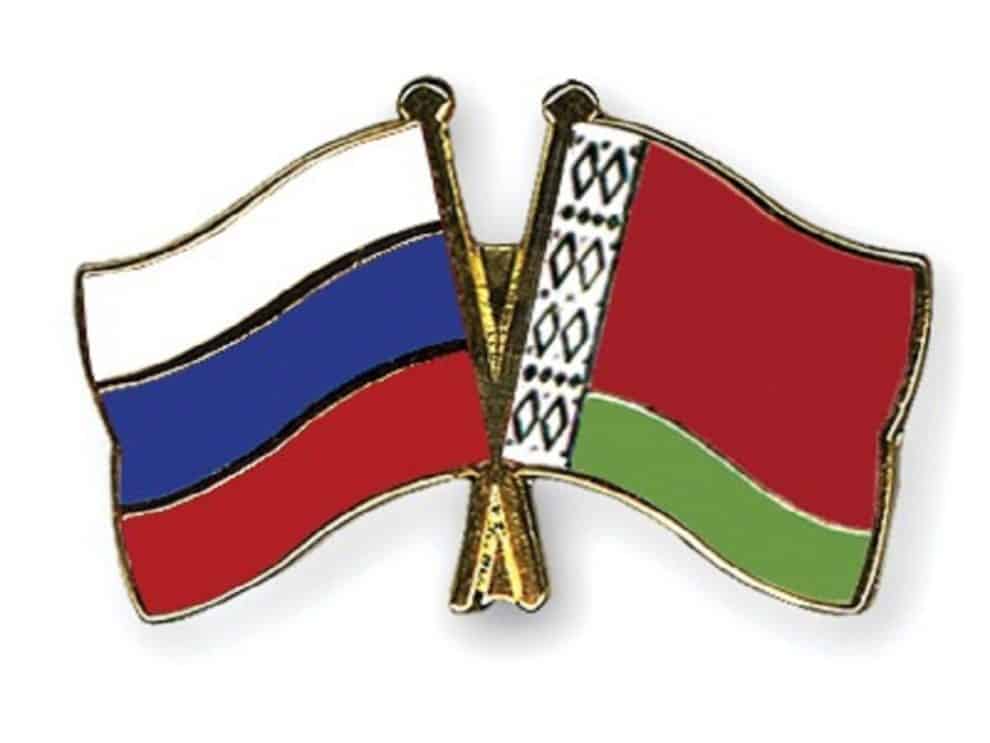Russia believes it is helping Belarus with subsidies that they are not required to give whereas Belarus believes Russia is taking their property and then giving it back to them and calling it a favor.
The official explanation is that Belarus is only successful because of Russian subsidies and access to Russian markets. The access to markets is beneficial to both countries. Their economies are linked and have been designed to operate together. The Soviet central planning has made the economies of former Soviet states more reliant on each other as they were designed to work as one body. Belarus was one of the most technologically advanced republics in the Soviet Union. Russia relies on Belorussian technology and industry in some sectors. This helped Russia a lot because Belarus was never looted like the rest of the former Soviet Union. This helped Russia quickly rebuild their technology sector. The open market between the two states benefits both countries. Without Belarus, Russia would have had to spend a lot more money redeveloping industries. You can see the cost of import substitution policies when Ukraine was lost. You can extrapolate using Ukrainian data to get the true cost if markets are closed.
My opinion on the energy subsidies based on the data that I have seen is that they don’t have as much of an impact as mainstream economists claim. I do agree that they are more important in the recent years of worldwide economic instability than they were before. Lukashenko took the state-run enterprises and turned them into business conglomerates with the eventual goal of competing with the West. He was fairly successful although Belorussian products are in demand primarily in the developing world. Most industries are reasonably profitable. As most major industries are still state-owned in Belarus, the state is the benefactor of these profits. The state uses this money to pay for social benefits for its citizens and infrastructure. The social benefits help with the velocity of money. It is like a stimulus without debt. The infrastructure keeps the demand up for locally produced products and increases tax revenues. Without the energy subsidies, Belarus would need to cut back on some state spending but it isn’t as drastic as mainstream economists claim.
The view of many Belorussians and likely Lukashenko is that they have a right to the subsidies. During the Soviet period, major strategic industries were owned by the central government and all peoples of the different union republics paid for it. Many argue that allowing the newly independent states to keep whatever industries that exist on their territory is wrong, and this is especially so when it comes to privatization. The government of Belarus was led to believe that the status quo from the Soviet era would remain and that the CIS along with the Economic Court of the Commonwealth of Independent States would ensure that economic rights were protected. Despite the CIS and that framework being a complete failure, the Russian Federation continued to supply natural resources according to the agreements reached except for circumstances in which a beneficiary country became openly hostile. Many of the legal documents about the agreements and negotiations are difficult to find because the 1990s were wild. Many Ukrainians also believe in this, which is why they believe that they have a right to Russian gas.
Over time, the Russian Federation became more sophisticated in power projection upon stabilizing after the 1990s. They started to use their control over natural resources to push for their own foreign policy goals. This happened along with a more capitalist mindset among the Russian ruling class. They wanted to adopt market rates for natural resources. With the capitalist mindset came the idea of sole ownership of the natural resources and the infrastructure used to harvest them. These two aspects are a major cause for tensions between Belarus and the Russian Federation. Belarus occasionally has its own foreign policy objectives, especially in Ukraine, and they don’t always align with those of the Russian ruling class. The pressure the Russian state puts on Belarus using occasional threats of removing subsidies and the change in the mentality of business interests in Russia to maximize profits have caused a lot of tensions.
The people of Belarus believe that they have rights to the resources because they helped build and pay for the development of the industries. They feel as if their own property is being used against them. It is an issue caused by differing development models. Some Belorussian economists believe that subsidies should remain or the state of Belarus should take an ownership interest in the companies that were previously state-owned during the Soviet period. They point to how some regions within Russia have ownership stakes in certain energy companies. It is just a different interpretation of the same facts. Russia believes it is helping Belarus with subsidies that they are not required to give whereas Belarus believes Russia is taking their property and then giving it back to them and calling it a favor.
Contributed by Boris G. Petrov.
DISCLAIMER: The views and opinions expressed in this story are those of the authors and do not necessarily reflect the official policy of Insider Paper.
